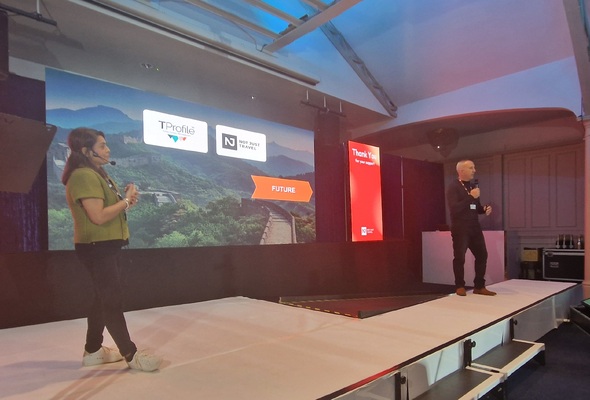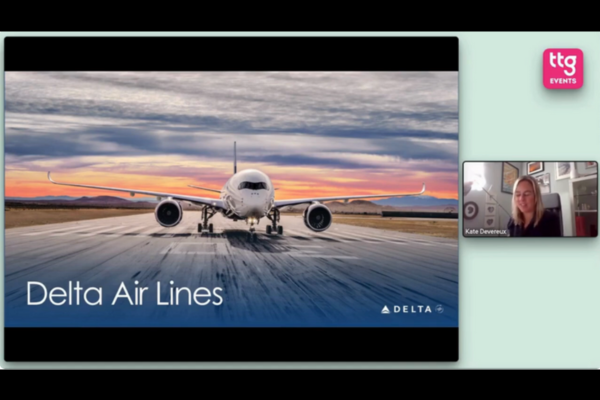Tech: Tapping into future trends
With the Travel Forward event at WTM London just around the corner, Andrew Doherty reports on the latest travel tech trends
This year’s Travel Forward event at WTM London will see more than 250 travel technology providers attend three days of insight into technological developments, debates and networking opportunities at ExCeL London.
Visitors will also have the chance to sign up to a series of talks, taking place on November 5 and 6, where they will hear from more than 50 experts on topics including artificial intelligence (AI), virtual and augmented reality and New Distribution Capability (NDC).
Here we ask six experts about the key points they will be discussing during the conference and how their products are influencing the travel industry.
Facing the future
Kicking off proceedings is Mike Croucher, head of technical strategy – chief architect, at Travelport. In his keynote opening address, Croucher will look at how travel businesses can embrace Distribution 4.0 technologies to engage with clients and deliver on the needs and expectations of today.
“The world around us is changing and new technologies are influencing the way we live and the way we interact with clients in travel,” Croucher says. He defines Distribution 4.0 as “the internet of things” – the idea that all objects around us are linked to the internet, which we can interact with through our mobile devices. This concept influences a number of factors, including personalisation, ancillary selling and wayfinding – using AI to find the best way through a physical environment.
“We are able to teach the computer in nanoseconds, learning instantly about what’s happening around us, interacting with it and then personalising everything.”
Mobile strategies
Vincent Fillon, director of mobile strategy and development at Air France, will focus on key features of the flag carrier’s successful app before touching upon how companies can leverage application programming interfaces (APIs) for communication purposes to target a broader range of clients.
Although the Air France app has generated €250 million of bookings in 2018, Fillon says that its intention was never to “aggressively sell”, but instead to act as a travel companion to assist customers through each stage of their journey.
“If you want to create an app that clients will use then it must be supplied with new and interesting content every day. I believe if its sole use is a booking platform, then it will not be as successful.”
He says that Air France has enjoyed “great success” with its Louis and Lucie chatbots, which help with baggage and inspire clients with destination recommendations respectively. According to a recent survey of 800 businesses carried out by software company Oracle, 80% of the respondents said they planned to use chatbots by 2020.
“We actors of travel industry must accompany our customers in their new digital habits,” Fillon urges.
New distribution capability
New distribution capability (NDC) – an XML-based enhanced communication standard between airlines and travel agents launched by Iata – holds huge promise for the industry, says Francesca Benati, Amadeus’ executive vice president, travel channels – online.
“For NDC to take off, we must create a real standard, not only for the protocol itself, but also for the way it’s implemented,” she explains.
Benati adds that because NDC is business model agnostic, each airline will need to decide which distribution method works best for them, through which channel.
“As the industry moves to embrace new approaches to merchandising and technology standards such as NDC, we must make sure we keep our ultimate customer, the traveller in mind,” she enthuses.
“Clients value consistency, transparency and choice. They want the additional service levels that personalised offers represent and they are willing to pay for them.
“However, they also want to compare and shop for those offers in the channel of their choice.”
Artificial intelligence
As chief technology officer at Trainline, Mark Holt has come to understand the benefits of using AI to improve the customer experience. At Travel Forward he will discuss how travel brands can get the most out of this technology.
“Providing a great booking experience that leads to high repeat rates involves giving customers more control and providing personalised experiences,” he says.
“For example, we’ve implemented price prediction algorithms that crunch 135 billion data points to accurately predict when prices for specific journeys will rise.”
Holt recommends agents embrace AI and machine learning – when a computer builds correlations from data without necessarily having been “explicitly taught” to help work with vast qualities of customer data.
“AI and machine learning can be used to understand customers’ travel quirks and over time provide automatic updates on journeys or suggestions for journeys that clients may wish to take.”
Virtual reality (VR) and augmented reality (AR)
An expert in human behaviour, Damian Rees, founder and director of Experience UX – a UK-based design company specialising in user experience in travel, transport and e-commerce – feels agents shouldn’t rely on virtual reality and augmented reality to enhance a client’s experience. “If companies start by thinking about the technology, they’re looking in the wrong place.
Ultimately, we need to understand what the traveller really needs to help them make a decision.”
Looking to AR – where objects in the real world are combined with computer-generated information – and VR, Rees admits these developments may be exciting, and do have their place, but believes that it still doesn’t “solve the travellers’ problem”.
“Our abilities as humans haven’t really changed. In fact, our brains haven’t changed in a million years. There are limits to our attention, perception, and memory.
“As technology places more and more demand on our ability to cope, we are actively rejecting technology in our lives.”
Rees says that AR and VR have a place, admitting that they can be “wonderful in some cases”.
“Begin with the human, identify their problem and then use technology to elevate the experience,” he advises.
Payments
Brian Quarrie, chief executive at Monami Tech, has more than 20 years’ experience in the payments industry. He will discuss how travel companies can reduce the friction surrounding payments.
“More payment options can reduce costs for travel agents. For example, if I turn up at a hotel or am booking a flight, I should have five different options to pay that all work very well,” he explains.
Quarrie says businesses could allow clients to pay with cash, but warns of the costs associated with transporting large amounts and keeping it safe for agency owners.
Secondly, he explains that clients can pay straight from their account, which is more efficient if “your country of origin has a national network that is cost-effective,” pointing to Germany and the Netherlands as good examples.
Thirdly, Quarrie says agents should be willing to take credit cards despite the card charges if clients want to pay this way.
Looking at cryptocurrencies – a virtual form of money using decentralised control, Quarrie says that it is unknown whether it will become used universally.
“Will it catch on with the public? History tells us, even if they are onboard, it will take some time.
“If you look at credit and debit cards, which have been around for 50 years, the deepest penetrated country in terms of cash versus electronic is the US and it’s 50/50 usage there. Cash will still be around for a thousand years.”
- Early-bird rates for the two-day conference are priced from £549pp. travelforward.wtm.com














